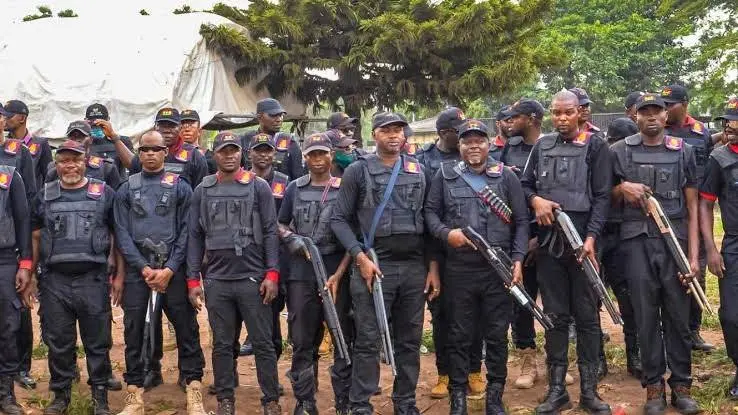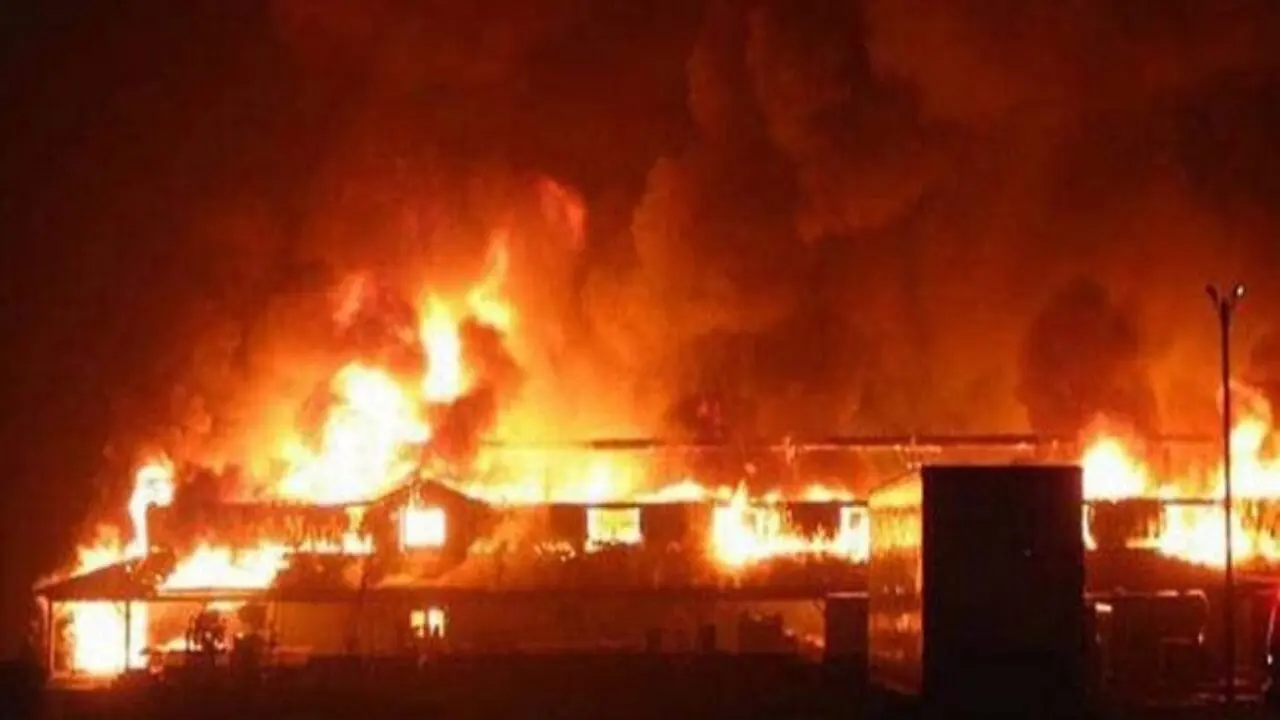
• Urge FG to be deliberate, strengthen economy
• Kukah: More vigilant lawmakers would have prevented current crisis
• ‘Nigeria will abandon naira if govt fails to act now’ – Dogara
• I have not earned salaries as governor, Soludo claims
Anambra State Governor and ex-Central Bank of Nigeria (CBN) chief, Chukwuma Soludo; ex-Minister of Works, Babatunde Fashola; the Bishop of the Catholic Diocese of Sokoto, Matthew Hassan-Kukah and former Speaker of the House of Representatives, Yakubu Dogara, yesterday, took turns to lecture government how to pull the economy out of the woods.
They also expressed fear that the demand for a new minimum wage, if not properly handled and resolved, could plunge the economy into a deeper crisis in the future.
The Nigerian Labour Union (NLC) and the Trade Union Congress (TUC) have described the N62,000 offered by the government as the new minimum wage as a starvation wage insisting on N250,000.
Speaking at a Democracy Day series of The Platform Nigeria, a programme by the Covenant Nation, the guests insist government, at all levels, must make deliberate efforts to revive the ailing economy and improve the welfare of the citizens.
With fears of the realities ahead, Soludo said there is a need for the country to make a distinction between national minimum wage and civil service minimum wage. He said talking about minimum wage as a sitting governor in Nigeria was like going to roast corn at a petrol station.
Noting that in the minimum wage, everybody is right, but we have to come back to realities of churches, MSMEs, we are all in it, whatever they agree, we will muddle it through but after one year, we will all meet to discuss the consequences. Whatever it is, in months to come, who will bear the consequences? If it is dislocated, everyone will still go back to the President to discuss how it can be fixed.
“Sometimes, I wish that we could pay everybody a minimum of N1 million and up to N5 million. Federal revenue will not exceed N17 trillion this year and if you share it with all Nigerians, it comes to N1,160 per person per month. But this money belongs to all Nigerians; that is what you take to provide infrastructure and other amenities,” Soludo said.
Soludo said he agreed with Rev Father Mbaka’s stand that public officials and elected governors should also earn the same minimum wage salaries as workers to feel the pain of workers.He said he has not received salaries since he assumed office, stating that he has donated his salary to the state.
“It is symbolic; it is not much. The salary of a governor in my state is N673,000,” he disclosed. He said Nigeria is very broke, but the evidence is not seen by the leaders with their obscene flamboyance in public display.
Soludo, while admitting that President Bola Tinubu could not be held entirely responsible for the economic problems facing the country, said the country was suffering from the accumulated poor actions and inactions of successive administrations since 1999.
“We are now suffering the consequences of delayed adjustments,” he said, emphasising that Tinubu has a “historic duty to mobilise Nigerians to clean up the mess for future generations”.
He noted that Nigeria is facing a fiscal quagmire and technical solvency problems, lamenting that debt has piled to a level that leaves little headroom for more borrowing albeit at a very high cost.
“Yet, the needs of the citizens keep increasing in geometric proportions by the day,” he lamented. The governor warned that printing more money would lead to spiralling inflation.
Dogara called for a living wage, saying the national wealth belongs to workers. He said if their salaries cannot take them home, they would be tempted to cut corners to get home. He urged the monetary authority to unlock “idle” foreign exchange (FX) stashed in private vaults, expressing optimism that this would strengthen the falling naira.
Dogara also urged the federal government to make it a policy to sell crude oil in naira and not in dollars, while proposing that security agencies should sniff around and get politicians and bigwigs hoarding dollars in private vaults.
The former speaker lamented that Nigerians have lost faith in the naira as a store of value, a reason the authority must move fast to stabilise it. The former lawmaker bemoaned that the insatiable appetite of Nigerians for the dollar is responsible for the steady decline in the value of the naira insisting that “all shady and authentic deals are closed in USD”.
According to him, the greenback has become the currency of choice of Nigerians and as long as we don’t kill our appetite for it, no appreciable value can be realised.
“The challenge before the government is how to unlock and keep the USD locked up in private vaults in Nigeria and begin to chase the naira. That to me is the commonsensical solution. I believe we have enough dollars in this country that we can unlock to make our economy work and crash the FX rate.
“The government must demand that all Nigerian exports, including crude oil exports, be paid for in naira, just as we don’t pay for any import into Nigeria from any country in naira. It is not too much to demand that. The government through credible intelligence generated by security agencies ought or should know those individuals in Nigeria who have taken advantage of the system and they have idle USD stashed in their private vaults.
“Should they fail to respond, it is my considered opinion that the President should invoke and apply the MBS solution, the Mohammed bin Salman Al Saud in Saudi Arabia,” he said.
No one who has taken advantage of the system, he said, should have the liberty to store in excess what his or her country desperately needs to lift millions of its people out of multidimensional poverty.
He said: “I believe that naira, as it stands today, is grossly undervalued. The most productive nations are not necessarily the nations with the strongest currencies. China is a perfect example.
“Take a look at the West African CFA countries. What are they producing and exporting relative to Nigeria? Why does CFA seem immune from the volatility naira has faced?
“What can we find in economic theories that justify the strength of the CFA against the naira? What was Nigeria producing in General Abacha’s days or OBJ or Jonathan’s days when the naira was a bit stronger that we are not producing now?” Nigeria, he said, would one day abandon the local currency “altogether” if the downward spiral is not arrested.
While acknowledging the global economic crisis, Kukah said the challenge is aggravated in Nigeria because of mismanagement. He said the situation could have been averted if Nigerian legislators were alert to their responsibilities. According to him, the legislators were instead preoccupied with their salary scales, fringe benefits and unnecessary foreign travel.
The clergy posited that as a result of our inability to cultivate financial discipline and prudent management of the economy, the country has come to depend largely on internal and external borrowing to execute projects.
Fashola also noted that the current privatisation of most businesses in the country was heralded by the military through Decree No. 25 of 1988 later amended in 1999, known as the Privatisation and Commercialisation Decree.






